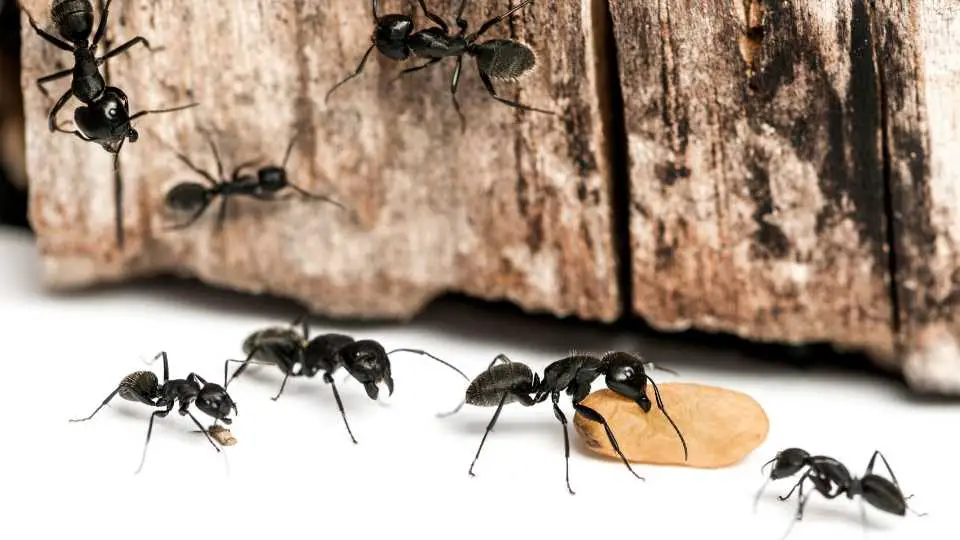
Image Source pestpit.com
Welcome to our blog post where we explore the question, “Can bleach kill ants?” Ants are fascinating creatures that play important roles in our ecosystem. However, these tiny insects can become a nuisance when they invade our homes or gardens. In such situations, finding effective ways to eliminate ants becomes crucial. Bleach is a common household cleaning agent known for its disinfecting properties, but can it really kill ants? In this article, we will delve into the topic and uncover the truth about using bleach as an ant killer.
The Behavior and Anatomy of Ants
Insect Behavior
Ants are social insects that live in organized colonies. They exhibit intriguing behaviors, such as foraging for food, communicating through chemical signals, and working together to build intricate underground networks. Understanding these behaviors can help us find effective strategies to control ant populations.
Ant Anatomy
Ants have a unique anatomy designed for their specific roles within the colony. Their bodies are divided into three main parts: the head, thorax, and abdomen. Each section has distinct features that aid in their survival and reproduction. By studying the anatomy of ants, we can gain insights into how various substances, including bleach, may affect them.
The Effects of Bleach on Ants
Can Bleach Kill Ants?
Many people wonder if bleach can effectively kill ants. While bleach is known for its germ-killing properties, its effectiveness as an ant killer is questionable. Bleach contains chemicals that can repel ants and disrupt their pheromone trails, but it may not necessarily kill them. Ants are resilient creatures that have evolved to withstand various environmental challenges, making them resistant to certain substances like bleach.
Do Ants Avoid Bleach?
Although bleach may repel ants, it is not a foolproof method to keep them away. Some ants may avoid bleach-treated areas initially, but over time, they may find alternative routes or develop immunity to its effects. This means that bleach alone is not a long-term solution for getting rid of ants.
Table Breakdown: Bleach vs. Ants
| Bleach | Ants |
|---|---|
| Kills germs | Resilient to certain substances |
| Repels ants | Can develop immunity to bleach |
Frequently Asked Questions about Can Bleach Kill Ants
Q: Can bleach effectively eliminate an entire ant colony?
A: Bleach alone is unlikely to eliminate an entire ant colony. It may kill some ants on contact, but it is not a comprehensive solution for colony eradication.
Q: Can bleach harm other household pets?
A: Yes, bleach can be toxic to other pets if ingested or exposed to in high concentrations. It is important to keep pets away from bleach-treated areas.
Q: Are there any natural alternatives to bleach for controlling ants?
A: Yes, there are several natural alternatives, such as vinegar, lemon juice, or peppermint oil, that can help deter ants without the potential harm associated with bleach.
Q: What are some signs of an ant infestation?
A: Signs of an ant infestation include seeing trails of ants, finding nests or mounds, and noticing damage to food or structures due to ant activity.
Q: Can bleach damage surfaces or fabrics?
A: Yes, bleach can damage surfaces and fabrics if not used properly. It is recommended to test bleach on small, inconspicuous areas before applying it to larger surfaces.
Conclusion
In conclusion, bleach may repel ants due to its chemical composition, but it is not a reliable method for eliminating an entire ant infestation. Ants are highly adaptive creatures that can develop resistance to bleach over time. It is best to use a combination of preventive measures, natural remedies, and targeted ant control techniques to effectively manage ant populations in and around your home. Remember to always follow label instructions and prioritize the safety of both humans and pets when using any substances to control pests.